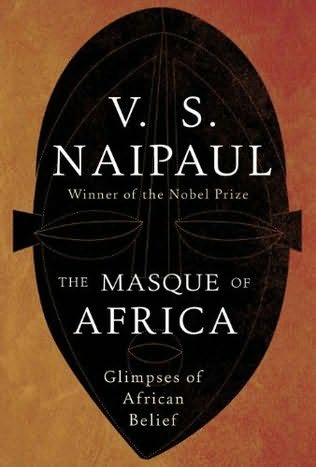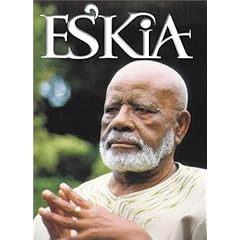 Ed eccomi finalmente all’incontro della bisticciata tra V.S. Naipaul, premio Nobel per la Letteratura nel 2001, e la giornalista e scrittrice Caterina Soffici. Preferirei non parlarne, ma visto che ho iniziato a scrivere questi post per fare una “relazione personale di alcuni incontri interessanti a cui ho assistito”, non posso farne a meno. Anche perché molte persone che hanno letto gli articoli sui quotidiani nazionali mi hanno chiesto che diavolo è successo. Devo confessarvi che non ho capito neanch’io cosa diavolo è successo!
Ed eccomi finalmente all’incontro della bisticciata tra V.S. Naipaul, premio Nobel per la Letteratura nel 2001, e la giornalista e scrittrice Caterina Soffici. Preferirei non parlarne, ma visto che ho iniziato a scrivere questi post per fare una “relazione personale di alcuni incontri interessanti a cui ho assistito”, non posso farne a meno. Anche perché molte persone che hanno letto gli articoli sui quotidiani nazionali mi hanno chiesto che diavolo è successo. Devo confessarvi che non ho capito neanch’io cosa diavolo è successo!Prima di tutto, per chi non conoscesse V.S. Naipaul: è uno scrittore di origine trinidadense, figlio di immigrati indiani, emigrato all’età di 18 anni in Inghilterra e che ha scritto sia della sua isola natale, sia di India, sia di Africa. E’ uno degli scrittori caraibici e postcoloniali più conosciuti al mondo e, come ho scritto prima, è stato premiato con il più importante premio letterario del mondo, il Nobel. Ultimamente ha scritto soprattutto reportage di viaggio, che vengono descritti come sinceri e dettagliati. Il fatto è che l’intervistatrice ha cominciato la presentazione dal punto di vista sbagliato, sottolineando le polemiche che girano intorno al personaggio. Vi spiego tutto: V.S. Naipaul è spesso bollato come anti-terzomondista (pur venendo egli da un paese del terzo mondo), provocatoriamente anti-islamico, snob, colonialista e viene visto, da un punto di vista più prettamente personale, come una persona difficile. Caterina Soffici lo definisce “uno dei campioni del politicamente scorretto”, ricordando anche una sua dichiarazione, che però così fuori contesto può voler dire tutto e niente (per la cronaca la dichiarazione era “in Inghilterra non esistono più i domestici di una volta”). Ora, siccome l’incontro era una presentazione dell’ultimo reportage di viaggi di V.S. Naipaul intitolato “La Maschera dell’Africa”, Caterina Soffici si addentra nella polemica che questo libro ha suscitato, in particolare citando un articolo uscito sul Sunday Times e scritto da tale Robert Harris che definiva il libro “tossico, grossolano, in accurato, in una parola repellente”. Le polemiche si riferiscono in particolare ad un passaggio in cui Naipaul dice che in Ghana sono talmente affamati da mangiare i gatti (ohibò, lo si faceva anche in Italia in tempo di guerra e poi onestamente non ci vedo nulla di strano nel mangiare un gatto, quando noi mangiamo galline, mucche e cavalli) e ad un’intervista a Winnie Mandela, che rivelava alcuni particolari della politica sudafricana post apartheid che poi lei ha smentito (anzi, ha smentito di aver mai fatto l’intervista, ohibò di nuovo). Naipaul risponde garbatamente all’intervistatrice dicendo che se un decimo di quelle cose che gli vengono attribuite fossero vere, non avrebbe nessuna reputazione. Egli non ha intenzione di difendere i suoi libri contro questi attacchi, perché chi li ha letti sa benissimo che non è lui ad avere pregiudizi nei confronti dell’Africa, ma sono i giornalisti ad attribuirgli i loro pregiudizi sul continente. Detto questo l’intervistatrice avrebbe dovuto capire che non era il caso di continuare a parlare della polemica e magari focalizzare su un altro argomento. A questo punto lo scrittore si è arrabbiato, percependo probabilmente erroneamente che l’intervistatrice era prevenuta nei suoi confronti e che o non aveva letto il suo libro oppure era “troppo di sinistra” (Naipaul dice che i suoi libri sono apolitici ma che comunque viene continuamente attaccato dagli intellettuali di sinistra). Nonostante Caterina Soffici abbia assicurato lo scrittore che non era così e che lei era anche d’accordo con alcune delle cose che lui scriveva nel libro, l’atmosfera diventa tesa e astiosa, con l’autore che si rifiuta di rispondere ad ogni altra domanda della Soffici e il pubblico che si schiera ora dalla parte di uno, ora dalla parte dell’altro.
Io mi sono trovata un po’ interdetta, non avendo letto il libro in questione, né conoscendo a fondo la polemica (l’articolo del Sunday Times è tra l’altro disponibile on-l
 ine solo a pagamento). Penso che ci sia stato prima di tutto un grosso malinteso, causato forse anche dall’età di V.S. Naipaul (ha 78 anni e sembra star invecchiando malino). A comprovare la cosa c’è il fatto che la moglie di Naipaul, Nadira, deve intervenire due volte a sedare gli animi e a parlare per il marito, insistendo sul fatto che hanno viaggiato per un anno e mezzo in Africa per scrivere questo libro e che le polemiche che sono state sollevate denotano che non si è capito il lavoro che è stato fatto sulla magia e sulle tradizioni africane. Conclude affermando – come se non si fosse capito – che suo marito ha un’alta considerazione del suo lavoro, tutto qui.
ine solo a pagamento). Penso che ci sia stato prima di tutto un grosso malinteso, causato forse anche dall’età di V.S. Naipaul (ha 78 anni e sembra star invecchiando malino). A comprovare la cosa c’è il fatto che la moglie di Naipaul, Nadira, deve intervenire due volte a sedare gli animi e a parlare per il marito, insistendo sul fatto che hanno viaggiato per un anno e mezzo in Africa per scrivere questo libro e che le polemiche che sono state sollevate denotano che non si è capito il lavoro che è stato fatto sulla magia e sulle tradizioni africane. Conclude affermando – come se non si fosse capito – che suo marito ha un’alta considerazione del suo lavoro, tutto qui.Dopo due tentativi dell’intervistatrice di portare la discussione, ormai irrimediabilmente compromessa, su altri binari facendo una domanda sull’Islam (altro argomento altamente a rischio) e una sulla scrittura (ma avrebbe dovuto pensarci prima) a cui Naipaul non vuole rispondere, egli esprime la volontà di terminare qui la conversazione (facendo, ahimè, la figura dell’antipatico snob che si porta dietro). La vera vittima della situazione, come afferma tra l’altro la scrittrice iraniana Azar Nafisi, presente in sala e intervistata dalle televisioni poco dopo la fine dell’evento, è il pubblico, che ha pagato il biglietto per conoscere un autore rinomato, per sentir parlare di letterature e invece non ha ottenuto niente di tutto questo.
Che delusione! Delusione di non aver ascoltato un dibattito impostato bene e delusione di aver “conosciuto” uno scrittore così irrispettoso del pubblico che è venuto per sentirlo.





